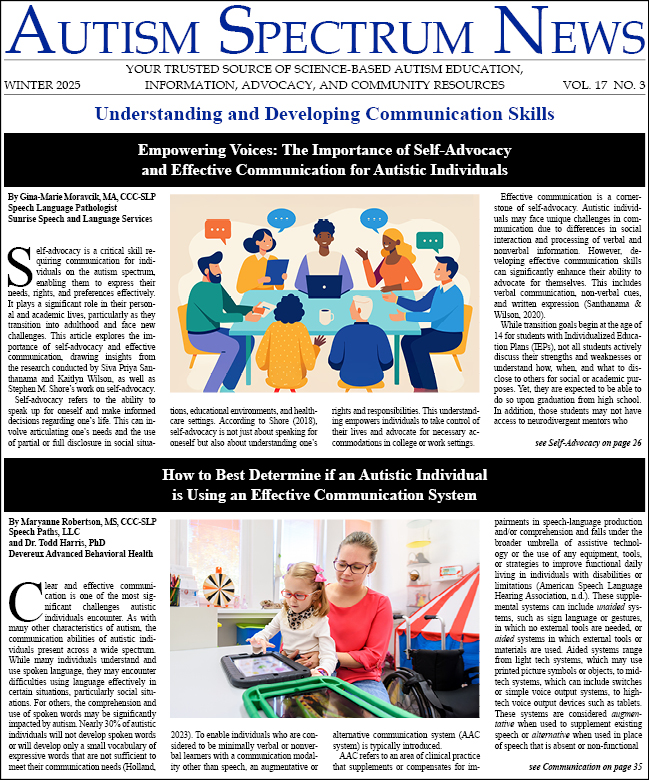-
Leaving School Behind – Next Stop, Adulthood
The prospect of adulthood is particularly complex for individuals affected by developmental disability, their families, and the people who care about them. Like their peers, they have accumulated two decades’ worth of experiences, their bodies have matured, and they are considered to be...
-
Transition to Housing: A Framework for Planning
Transition is a critical time for young adults. According to the Individuals with Disabilities Education Act (IDEA), school systems are required to begin transition services when youth reach the age of 16 years (some states do require it to start at 14 years). IDEA is the law for special education...
-
Transition from Middle School to High School – Valuable Advice from a High School Senior with Asperger Syndrome
The hallways are crowded. Lockers are lined with chatty students and the cafeteria is serving what may or may not be food. Where will you fit in? The homework is demanding. Your teachers have high expectations and you may be unsure about how to meet them. Would they understand? As you’ve heard,...
-
The Road to Adulthood
Transition from school to the adult world is exhilarating for some, terrifying for others. Some families have described it “like falling off a cliff and never knowing when we will hit the bottom or climb back to the precipice.” This time is well-described by the hundreds of families who worry...
-
The Educated and Jobless
After earning a Bachelor’s degree in political science, Steven* turned his attention toward a job in public policy. He figured that his knowledge of government, interest in research, and 3.8 GPA would make it easy to find an entry-level position. Instead, he discovered a competitive field where...
-
Lessons Learned – Tackling the Unemployment Crisis for Adults with Asperger’s
Transitioning into adulthood encompasses a wide array of new experiences: The emotional changes involved if an individual is leaving home, the cognitive challenges of navigating how the world operates, the acquisition of independent living skills, and managing new relationships– both romantic and...
-
Positive Psychology Offers Guideposts for Optimism to Young Adults on the Autism Spectrum
As young people on the autism spectrum look ahead towards adult life, they and their families often feel anxious as they think about entering unknown territory. It can be reassuring to know that having an autism spectrum diagnosis does mean that a person cannot enjoy a mentally healthy life in...
-
Planning for the Future: Guardianships and Special Needs Trusts
As your autistic child transitions into adulthood, you will need to address two very important legal issues: guardianships and special needs trusts. Once your child reaches the age of majority, you must consider whether a guardianship is appropriate. Further, regardless of the age of your child, it...
-
Parental Stress and Family Relationships During the Transition to Adulthood
Previous research has found that parents of children with ASD across different age groups exhibit significant levels of stress and are at greater risk for mental illness. The stress exhibited by parents of children with ASD has been found to be even greater than parents of children with other...
-
The Autism Speaks Transition Tool Kit – A Guide to Assist Families on the Journey from Adolescence to Adulthood
In an effort to help families and their adolescents with autism more smoothly navigate the challenging transition into adulthood, Autism Speaks, the world’s leading autism science and advocacy organization, launched in February 2010 the Autism Speaks Transition Tool Kit, a unique guide and...




